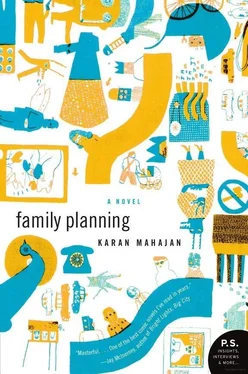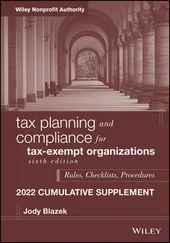“He is right,” said Iyenger. “Nowadays I see you more on STARNews than in Parliament. I thought you will laugh on my face if I said we are resigning for such a silly reason.”
“You have become a pukka CEO!” added another. “A technocrat!”
“We are very inspired by your efforts with your ministry.”
Rakesh was irritated. To say he was “above politics” was to essentially say he wasn’t a good politician. Yes, this was ridiculous: he was being punished now for being an efficient worker? For sweating over infrastructure rather than cultivating contacts? Trembling with anger, he got up and reached to draw the blinds — but as he did, his papers fluttered from the table and an MP whipped her dupatta over her shoulder. He turned around, felt the tubes of his shirtsleeves flute with turbulence. The MPs were holding their cups of tea to their noses; on the table below, ring after ring of condensation startled into a blinding orange, then eclipsed into an even teak. All eyes turned from the wooden tabletop. To him. A familiar and delirious rhythm of saliva and silence percolated in his throat. His hands flattened on the paper; he leaned in to the crowd of gray heads — the perfect posture for a lambasting session. “I wasn’t at the cabinet meeting, but I am here now, naah?” said Rakesh, holding his palm up. “You people talk such nonsense. Luckily, I am as foolish as all of you people. I have also resigned.”
The round of repartees was jovial. Again, he felt triumphant. They’d accused him of not being enough of a politician, and he’d hit back with a fantastic backhand, a googly, a double play. Now they thought he’d joined their ranks for the cause of Mohan Bedi, and Rupa Bhalla thought he was 100 percent behind her. He’d covered both bases.
“Okay,” said Rakesh, snorting, “let us get down to business.”
But when the agenda was being passed around, Vineet asked Rakesh, “Accha, ji. Where did you buy this stylish shirt from?”
“Gift,” said Rakesh.
“The tie?”
“Inherited.”
“Jacket?”
“Borrowed.”
(The other MPs watched this volleying, extremely amused.)
“Borrowed? From whom?” inquired Yograj, politeness itself.
“What did you just say? Anyway. Please let us get on with business.”
“But you didn’t tell,” said Vineet. “How did you hear of the resignation?”
“You’ll have to speak up.”
“HOW DID YOU HEAR?”
“Well. You are shouting! That is how.”
“You are pulling my leg. How did you hear about the resignation?”
“Sources.”
Vineet said. “I hear you visited Madam today?”
“To resign, why else?”
“Look,” said Vineet, turning to the other MPs, “I told you Rakesh-ji is having great inner strength. He must be having the flaxseeds I gave last time. None of us others resigned in person.”
“Yes. How was she?” they asked. “What did she say?”
“Come again?”
“HOW WAS SHE?”
“Angry,” Rakesh snorted. “She said she was going to suspend most of you. I had to convince her not to, even as I myself was resigning! I think madam realized that I was the final nail in the coffin. How many people can she suspend?” Then he added, “You people should be happy I was there at the right moment.”
Well done, Ahuja!
However. The exhilaration of his extemporaneous turncoat lasted only so long: back in the car, on the way to the ministry, the gaps in his teeth nicely irrigated by tea, he was again bothered that no one had updated him about the resignations. Maybe he should have put the buggers in their place — minced no words about how he wanted no part in this TV farce, shown that he was furious that they’d mock his commitment to the flyovers rather than praising it. Then again, that would only make him more unpopular in the party. But what if he already was unpopular in the party — and then Rupa Bhalla found out about his false promise of support? Who would he have on his side then?
There were no easy answers. All the way to the ministry, every cow he saw was a personal affront to him — a shit-covered hurdle for traffic. The street by now — so pristine in the morning — was a study in chaos. The setting sun offered its own ferocious interpretation of events: light shot between the flat metal hoardings on either side like gunfire in an alley; a man loaded five children mass-suicidally onto the back of his scooter; under a crinkled blue tarpaulin a fat policeman hydrated himself with a glass of the filthiest lemon juice, wiping his mustache just as Mr. Ahuja passed.
Closer, the reflection of Mr. Ahuja’s wristwatch — its perfect sphere of heat and light — described a parabolic path over the gray-padded ceiling of the car. The streetlights were straight poles with branched lights that looked like the simplistic V-shaped birds his children made in their first crayonic paintings — he would never let his children drive. This much he was clear about. Never mind that Arjun was approaching eighteen. Never mind that Arjun would never respect him. Never mind that Arjun traveled in a DTC bus every day just like the one that was overtaking Mr. Ahuja’s official, white, Government Lion Embossed License Plate, Hindustan Motors Millennium-Edition, Leather-Seat Ambassador at a speed sanctioned only by the movie Speed and was now breaking every single rule of inertia in order to suddenly halt behind the five-person scooter — the smallest child on the scooter dropping her ice-cream bar and turning around to wipe her fingers on the dirty grille of the bus as it rocked up and down on its shock absorbers.
Mr. Ahuja asked his driver, Mathur, to slap the red official siren atop the car.
“Important meeting, sir?” Mathur asked, leaning out of the car.
“No, yaar, I’m thinking in terms of your sons. Do you want to see them grow up into young men? If this traffic continues, this car will be a coffin by the time you get home.”
“Yes, sir, but they will be short — like me,” said Mathur, adjusting the pillow he sat on to reach the dashboard. “That is the only thing.”
Then the car extruded a massive honk and they were off. Rakesh held his breath.
He tried to see himself through the jaundiced eyes of his colleagues. After all, he’d become what he hated: a complainer, a problem finder. He’d always pooh-poohed Indians who complained about traffic, taking a certain nationalist pride in the open show of might and opportunism, but ever since Rashmi’s accident, he’d begun to palpitate over the risks drivers took to slice into the smallest gap, to overtake blindly from the left, the number of dents on even the newest cars, the way a pedestrian was expected to write a fresh will before crossing the road.
The traffic had been the same level of terrible when he and Rashmi came home for their first holiday from Vermont nearly twenty years ago. What had changed was Rashmi. She’d imbibed the straight magical lines of the West, its fetish for sanity. She asked the driver not to run red lights. Rakesh pointed out that this was his Masi’s driver, and that we people from USA should not order him around and that if we don’t run this bloody red light we’ll be flattened by the angry-looking truck approaching from the right, do you see it? Rashmi prayed calmly to the driver not to kill the poor man on the rickshaw in front of them. The driver didn’t listen. Rashmi said, What is wrong with us Indians? Rakesh took offense, and said, Firstly, speak for yourself, darling, and also, What is wrong with the British that they conquered India and then left us poor and with bad laws and a corrupt civil service and then created schools where we educated people to be engineers and journalists only so that they could leave the country and then live abroad and come back for a few days in the year and say: Oh, look how trickly and toxic the shower is, if I get naked a thousand flies will feast on my body, everybody I touch is like a beggar only—
Читать дальше












